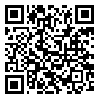Volume 21, Issue 4 (1-2019)
Hakim 2019, 21(4): 266-273 |
Back to browse issues page
Download citation:
BibTeX | RIS | EndNote | Medlars | ProCite | Reference Manager | RefWorks
Send citation to:



BibTeX | RIS | EndNote | Medlars | ProCite | Reference Manager | RefWorks
Send citation to:
damari B, minaee F, Riazi-Isfahani S. Challenges and Requirements for Achieving Equity in Health in the Islamic Republic of Iran. Hakim 2019; 21 (4) :266-273
URL: http://hakim.tums.ac.ir/article-1-1760-en.html
URL: http://hakim.tums.ac.ir/article-1-1760-en.html
1- National Institute of Health Research, Tehran University of Medical Sciences
2- National Institute of Health Research, Tehran University of Medical Sciences ,sahand1000@gmail.com
2- National Institute of Health Research, Tehran University of Medical Sciences ,
Abstract: (2103 Views)
Challenges and Requirements for Achieving Equity in Health in the Islamic Republic of Iran
Behzad Damari 1, Farima Minaee 2, Sahand Riazi-Isfahani 3 *
1 Neuroscience Institute, Tehran University of Medical Sciences, Tehran, Iran.
2 Community Medicine Specialist
3 Department of Social Determinants of Health, National Institute of Health Research,
Tehran University of Medical Sciences, Tehran, Iran
*Corresponding Author: Assistant Professor of Community Medicine, Department of Social Determinants of Health, National Institute of Health Research, Tehran University of Medical Sciences, No. 70, Bozorgmehr Ave., Tehran, Iran. Tel/Fax: +98-2162921338, Email: sahand1000@gmail.com
Behzad Damari 1, Farima Minaee 2, Sahand Riazi-Isfahani 3 *
1 Neuroscience Institute, Tehran University of Medical Sciences, Tehran, Iran.
2 Community Medicine Specialist
3 Department of Social Determinants of Health, National Institute of Health Research,
Tehran University of Medical Sciences, Tehran, Iran
Abstract
Introduction: Tackling inequity in health is one of the main objectives of health systems. The aim of this study was to assess the achievements and challenges, as well as solutions, in reaching the equity in health in Iran.
Methods: This study was conducted using a qualitative approach. Data were gathered by reviewing documents and conducting focused group discussions with the stakeholders. The analyzed data were categorized into three groups including achievements, challenges, and solutions.
Results: The Iranian health system has achieved many successes in the past 10 years including expanding the primary healthcare networks to city outskirts, implementing the family physician program (urban and rural), implementing the Health Transformation Plan (HTP) and subsequent decrease in catastrophic and impoverishing health expenditures, and increasing the public access to health information and subsequent responsiveness of policymakers. However, some factors hindered further achievements, including the absent or incomplete implementation of laws and practical policies, insufficient attention to the social determinants of health, and poor designing and implementation of the health annex for the policies.
Conclusions: It seems that there are little problems in legislation and policymaking in the country and the laws are almost compatible with the recommendations of the World Health Organization, aiming at the inequity reduction in health. However, there is a gap between the policymaking/legislation and the practice. In other words, legislation is poorly practicable and the principles of good governance, including attracting the participation and cooperation of stakeholders, are not fully respected.
Keywords: Equity in Health; Primary Health Care; Policymaking; Law; Governance; Social Determinants of Health
Introduction: Tackling inequity in health is one of the main objectives of health systems. The aim of this study was to assess the achievements and challenges, as well as solutions, in reaching the equity in health in Iran.
Methods: This study was conducted using a qualitative approach. Data were gathered by reviewing documents and conducting focused group discussions with the stakeholders. The analyzed data were categorized into three groups including achievements, challenges, and solutions.
Results: The Iranian health system has achieved many successes in the past 10 years including expanding the primary healthcare networks to city outskirts, implementing the family physician program (urban and rural), implementing the Health Transformation Plan (HTP) and subsequent decrease in catastrophic and impoverishing health expenditures, and increasing the public access to health information and subsequent responsiveness of policymakers. However, some factors hindered further achievements, including the absent or incomplete implementation of laws and practical policies, insufficient attention to the social determinants of health, and poor designing and implementation of the health annex for the policies.
Conclusions: It seems that there are little problems in legislation and policymaking in the country and the laws are almost compatible with the recommendations of the World Health Organization, aiming at the inequity reduction in health. However, there is a gap between the policymaking/legislation and the practice. In other words, legislation is poorly practicable and the principles of good governance, including attracting the participation and cooperation of stakeholders, are not fully respected.
Keywords: Equity in Health; Primary Health Care; Policymaking; Law; Governance; Social Determinants of Health
| Please cite this article as follows: Damari B, Minaee F, Sahand Riazi-Isfahani S. Challenges and requirements for achieving equity in health in Islamic Republic of Iran. Hakim Health Sys Res 2019; 21(4): 266- 273 |
*Corresponding Author: Assistant Professor of Community Medicine, Department of Social Determinants of Health, National Institute of Health Research, Tehran University of Medical Sciences, No. 70, Bozorgmehr Ave., Tehran, Iran. Tel/Fax: +98-2162921338, Email: sahand1000@gmail.com
Keywords: Equity in health, primary health care, policy making, law, governance, Social Determinants of Health
Type of Study: Original |
Subject:
General
Received: 2018/01/21 | Accepted: 2019/05/14 | Published: 2019/05/14
Received: 2018/01/21 | Accepted: 2019/05/14 | Published: 2019/05/14
Send email to the article author
| Rights and permissions | |
 |
This work is licensed under a Creative Commons Attribution-NonCommercial 4.0 International License. |





